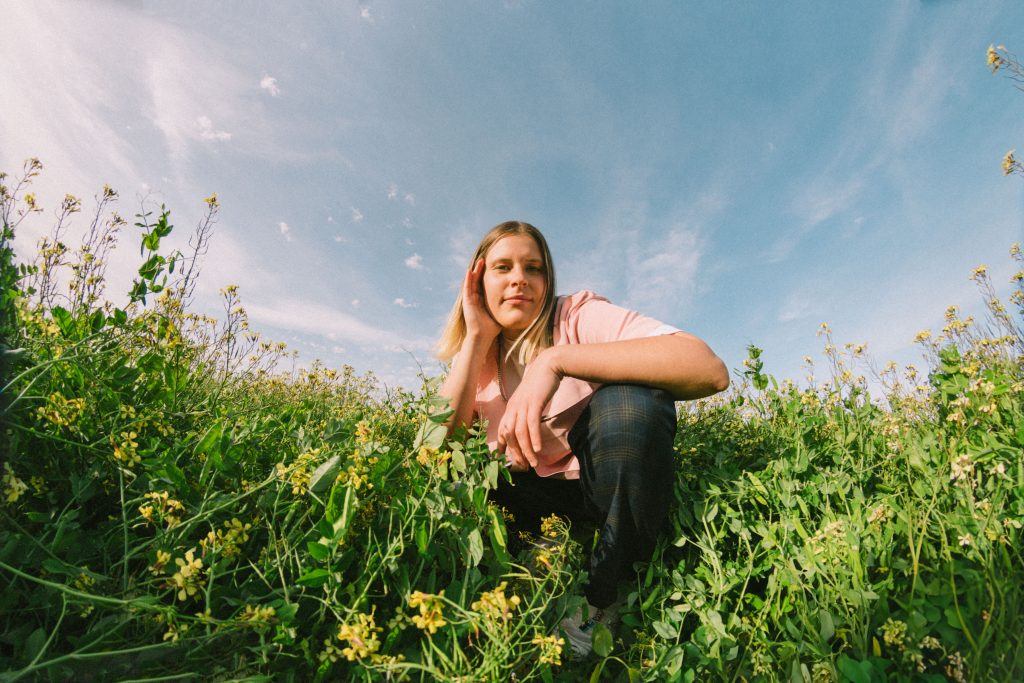
Please tell us your story! How did you get to where you are today?
Ok! Where to start? I grew up in Geelong. My parents moved to Australia from Germany just before I was born. I grew up around a fair bit of music, there was always something playing in the house, Queen, Pink Floyd, Supertramp. We used to go to a lot of music festivals like Port Fairy Folk Festival, Queenscliff Music Festival and Apollo Bay Music Festival. My uncle taught me how to play ‘Smoke On The Water’ when I was 10, but I didn’t really start playing an instrument until I got to high school. I learnt the clarinet first for a term, but I quickly gave that up and switched back to the guitar. I began playing in an all-female Motown / soul cover band called The Sweethearts and I got to tour Europe a couple of times in my late teens, performing at Montreux Jazz and Porretta Soul festivals. It was a once in a lifetime experience and it gave me a valuable insight on all the basics of playing a show, touring and performing in a band.
When I graduated high school I moved up to Melbourne and I was accepted into a music industry course at RMIT University where I was introduced to Ableton Live and sampling. I spent hours in my bedroom trying to get better at music production, inspired by the likes of J Dilla, The Avalanches and others. I was hooked because it gave me the freedom to create whatever I wanted without having to rely on a band. At the time I was interning for an indie record label and a management company in Melbourne and volunteering at as many music festivals as possible to get my experience up. In the background I was working on my own songs, and eventually I got up the courage to start playing shows. My first ever show was at a university showcase kind of a thing at Horse Bazaar in the city (sadly it’s closed now) and that gave me the confidence to want to do it again! I was hitting up bands that were playing the Corner, the Northcote Social Club and other venues in Melbourne asking if they needed openers. I ended up hiring a publicist, who later became my manager, and we put out my first proper single, ‘Touch’ which was the first song of mine to receive airplay on triple j. Fast forward a little bit, I signed two record deals with Dew Process in Australia & New Zealand and Last Gang Records in Toronto for the rest of the world and I put out my first album ‘I’m Dreaming’ in February 2018. That year I got to perform shows supporting artists like Billie Eilish, Foster the People, Flight Facilities and The Jungle Giants. In 2020, I released my second album, ‘Don’t Sleep’ which opened up so many doors for me. The first single from the album, ‘In My Mind’ feat. Ecca Vandal was synched in a global Apple iPhone commercial and charted on Shazam all around the world. ‘Don’t Sleep’ ended up being nominated for ‘Best Dance Release’ and ‘Engineer of The Year’ at the 2020 ARIA Awards, the J Award for ‘Australian Album Of The Year’ and was one of nine albums short-listed for the Australian Music Prize. After ‘Don’t Sleep’ I really began to really be recognised as a producer, I signed a global publishing deal with Concord Music and from there I found myself balancing my artist project with a lot of production and co-writing for other artists, traveling back and forth between the States, the UK and my studio here in Melbourne. I’ve played well over 400 shows and written more than 300 songs for my Alice Ivy project as well as for artists like Mallrat, Jordana, Boo Seeka, Georgia Maq, Kee’ahn, tiffi and others. At best guess, my catalog has had more than 80 million streams. For the past few years I’ve been writing my third album, ‘Do What Makes You Happy’, which is coming out later this year, working with artists like Mayer Hawthorne, Mallrat, Kah-Lo, BJ The Chicago Kid and Josh Teskey. It’s kinda wild typing this out right now I never in my wildest dreams would have envisioned that this is where I’d be today.
Why did you want to get into the music industry?
I was so hooked on the adrenalin rush and excitement of working in the industry. I knew I always wanted to work in music because music has played such a major role in my life.
“Particularly in electronic music there is still a massive gender gap, not a single solo female producer has ever won ‘Best Dance’ or ‘Best Producer’ at the ARIA Awards, which completely baffles me given how many extraordinary female producers we have in Australia.”
Do you feel that higher education is a necessary step to enter the music industry?
That’s a tough question! For me, I really appreciated the course that I studied, because coming out of high school at age 18 I didn’t really know exactly what I wanted to do in music and it provided me with a starting point. However, you can’t write a textbook on how the music industry works, it’s an ever-evolving beast and it sometimes feels like the wild west, all the rules go out the window. The way you adapt and respond to your everyday work is a skillset you can only gain via real life experience, interning, volunteering and to be honest by being a hard worker and a good person that people like working with. I don’t think you’re likely to get a job right out of the gates simply by completing a tertiary course, unfortunately that’s not how it works, but if you can arm yourself with a degree and lots of real life experience, it gives you a better shot.
Tell us about your advocacy work…
Whenever I’m not on tour I try to do everything that I can to give back to the community that paved the way for me. I’m currently on the board of the Music Producer & Engineers Guild, formed by the incredible Anna Laverty. MPEG is working on building a stronger community among our producers and engineers and highlighting some of the problems people in the field are facing. I’m involved in the APRA Songmakers program, which brings songwriting mentors into schools and helps students write and produce songs from the ground up as well as providing them with tips on getting into the industry. I’ve been involved in the Mushroom First Nations Pathway Program as a mentor and producer, the AIR Women In Music Mentorship Program, The Push Music Accelerator Program, The Operator series at Arts Centre Melbourne for women, trans and GNC individuals, focusing on electronic music production, MMAD (Musicians Making A Difference), Ricochet Songs all-female writing camp, multiple APRA Song Hubs, Green Music Australia’s Sound Country Women’s Leadership retreat, TedX Youth and loads of other workshops, primarily geared towards music production for aspiring female and non-male producers
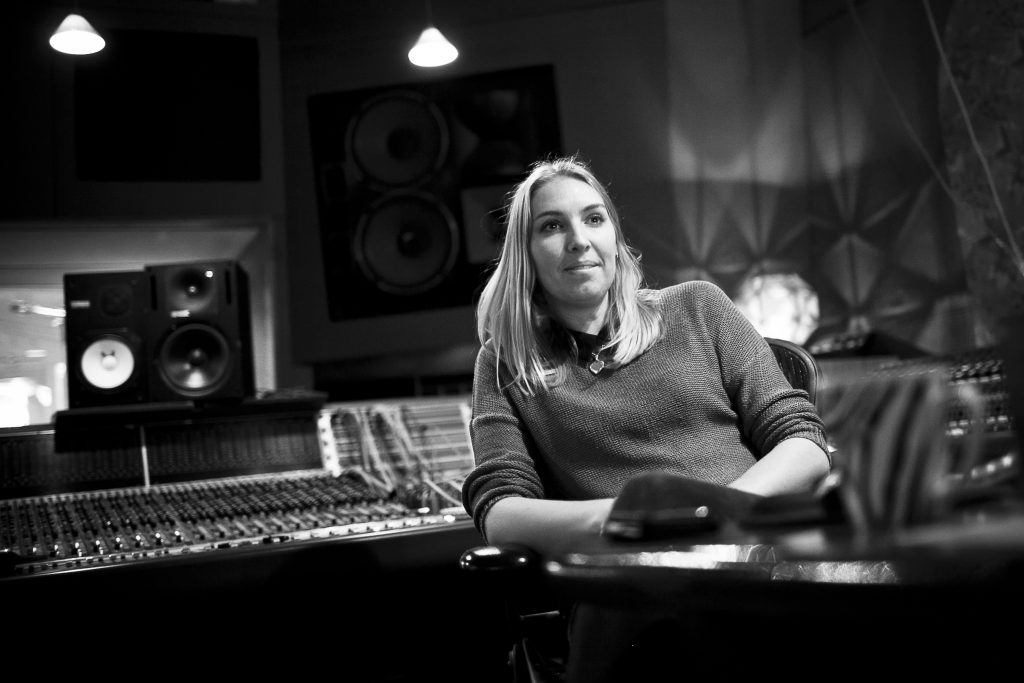
Let’s talk about the highs vs the lows of your career. What is your greatest achievement?
There are so many things I’m so proud of in my career, and it’s wonderful reflecting on them. As questionable as awards ceremonies are, being nominated for ‘Best Dance Release’ and ‘Engineer of the Year’ at the ARIA’s was a really special moment for me. More so, because I’m one of the only female producers to be nominated for either award in the history of the ARIA’s. Being able to say I’ve played a music festival in Mexico City is pretty cool too! Last November I played Corona Capital, the year that Blur headlined and reflecting on that moment it really hits home how far my music has taken me. I’m fortunate to have played Splendour in the Grass three times, the last time being the infamous Splendour In The Mud year. I didn’t think anyone was going to show up to my set on the Saturday, but the clouds parted and the tent was absolutely packed. Just hearing people singing the words to every song is something that I’ll never forget.
I’ve had the highest of highs but the journey getting to those moments hasn’t always been easy. I’ve been so lucky in my life that (apart from a broken leg when I slipped over at a music festival) I’ve always been healthy and I’ve always had a super supporting family, but the amount of work and the effect it has on your mental health is wild and it hasn’t all happened overnight. As a solo artist and a producer you spend a lot of time alone, and you have to keep yourself motivated. As a female working in the industry, especially as a music producer, I’ve genuinely had to work twice as hard as my male counterparts to get to where I am today.
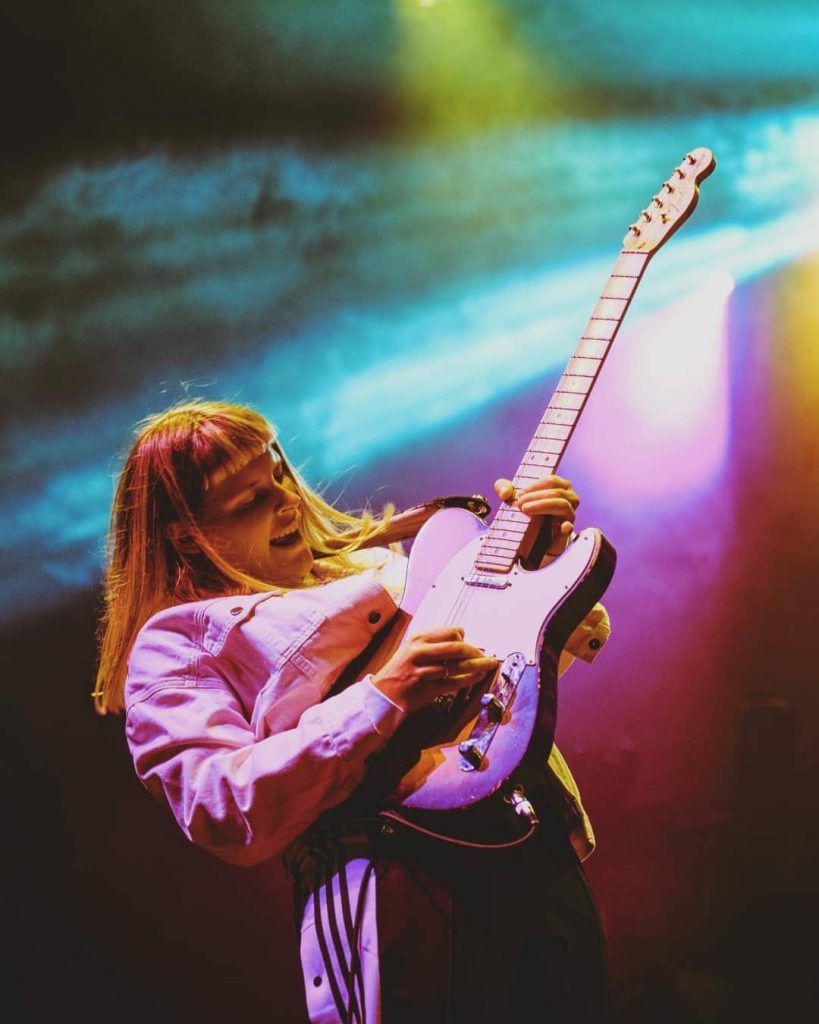
You’ve supported a wild array of incredible artists on tour over the years, what was one of your most treasured memories?
I’m so lucky to have been on so many great tours. Probably the most fun I’ve ever had on tour was supporting The Jungle Giants all around Australia. They are the kindest band and there was such good energy on that tour. Another memory that comes to mind is when I supported Billie Eilish on her first Australian dates. I remember standing at the back of the room when Billie and Finneas were playing ‘Ocean Eyes’ and thinking she was going to absolutely blow up.
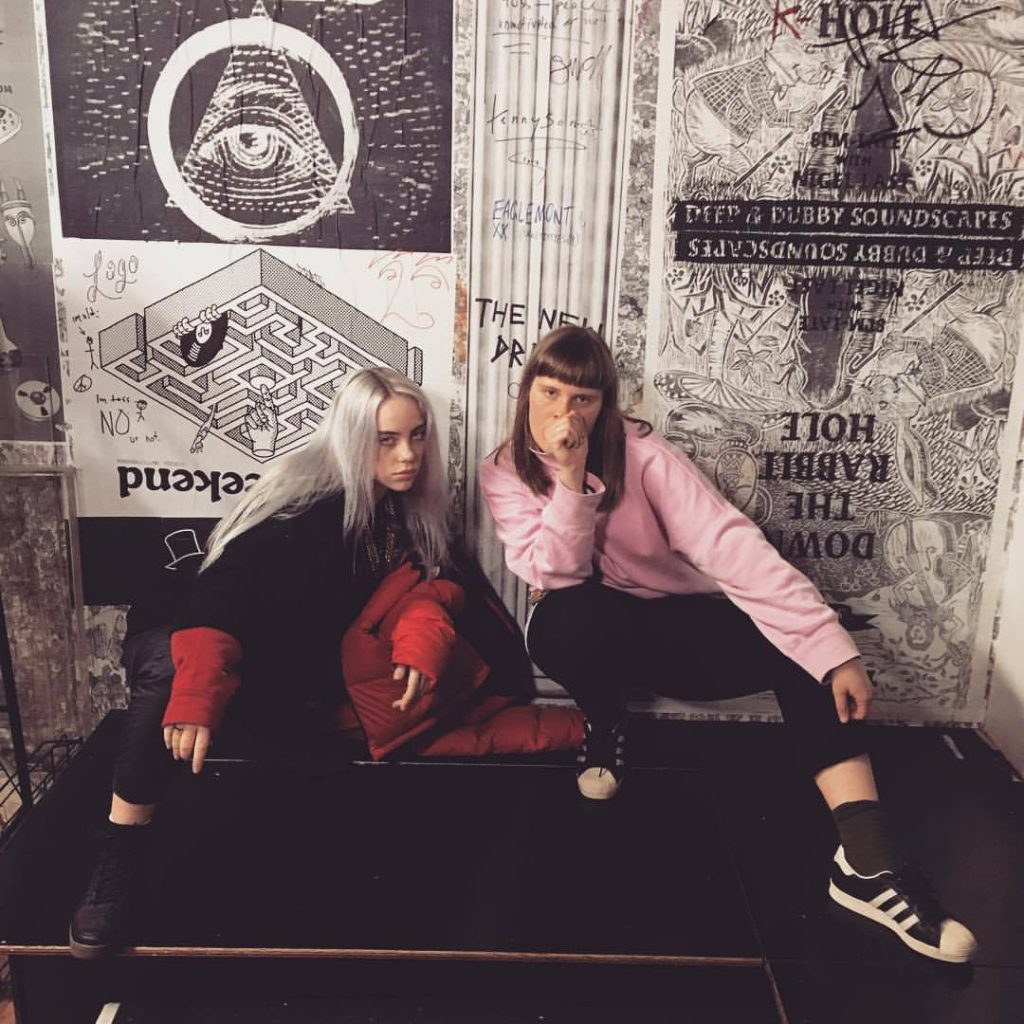
For artists who haven’t been on tour or are planning to go on their first, what big tip do you have that may not cross most people’s mind?
Take baby steps. Your first tour doesn’t need to have all of the bells and whistles. If you’re an opening pop act, don’t blow your budget on a full band, perhaps start with a couple of members, or even go at it solo if you’re confident! Make sure all of your technology is sorted and backed up. Make sure your tech rider is easy to understand and be SUPER kind to everyone at the venue, nobody likes a person with ego on tour and you’ll probably be relying on in-house production to do your sound.
“How many once-in-a-generation artists are we going to miss because they weren’t compatible with the marketing demands being placed on artists?”
You’ve been a regular mentor for AIR’s Women In Music, what is the program & what is it like to be a mentor?
I’ve been a mentor for AIR for a little while now, it’s such a great program! Essentially a mentee gets matched with a mentor from a specific area of the industry that they’re looking to get into, ie. production, management, publicity etc. and you meet up four times over the course of a few months. You set goals with them and give advice and direction. It’s an excellent program to be involved in.
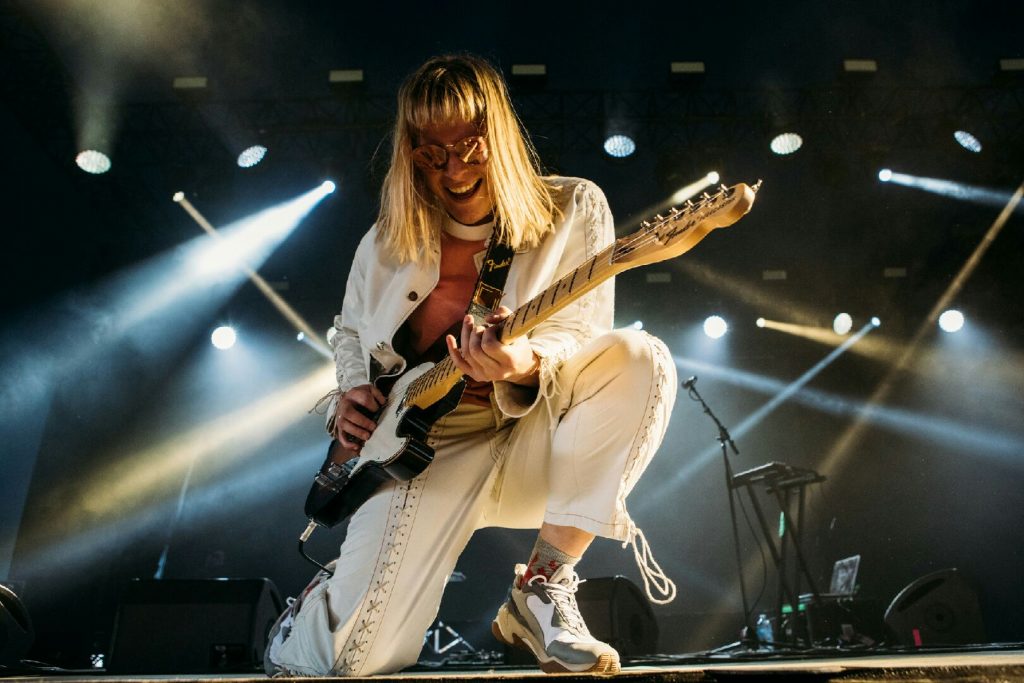
Who has been your biggest champion in your career?
I’m so lucky to have so many positive people around me. My parents have always been super supportive my whole life, my Mum and Dad are always front row and centre of every hometown show. My brother Dominik is a brilliant photographer and has taken most of my press shots over the years, including all three of the album covers! My manager Zac and I have been working together for over 8 years now, he’s pretty much been on the journey since day one and always supported me through thick and thin! We’ve achieved a lot together and I’m very grateful for him and everyone on my team. What they say about it ‘taking a village’ is extremely true in music.
What is the best piece of life advice you’ve ever received?
A few years ago my friend Mallrat said, never be jealous of anyone around you, because 9 times out of 10 you’ll end up calling them a friend one day and that’s something I’ve always subscribed to. The industry sometimes makes it feel like artists are always competing against each other, but in truth everyone is just running their own race. Stay positive and be kind to the people around you!
“never be jealous of anyone around you, because 9 times out of 10 you’ll end up calling them a friend one day and that’s something I’ve always subscribed to. The industry sometimes makes it feel like artists are always competing against each other, but in truth everyone is just running their own race. Stay positive and be kind to the people around you!”
What would you tell your younger self if you could tell them anything?
Practice the piano more and really soak up the festivals and events of that era because it really was so special. Who else was at Big Day Out the year that Muse, Passion Pit, Calvin Harris and Peaches played? What a time to be alive!
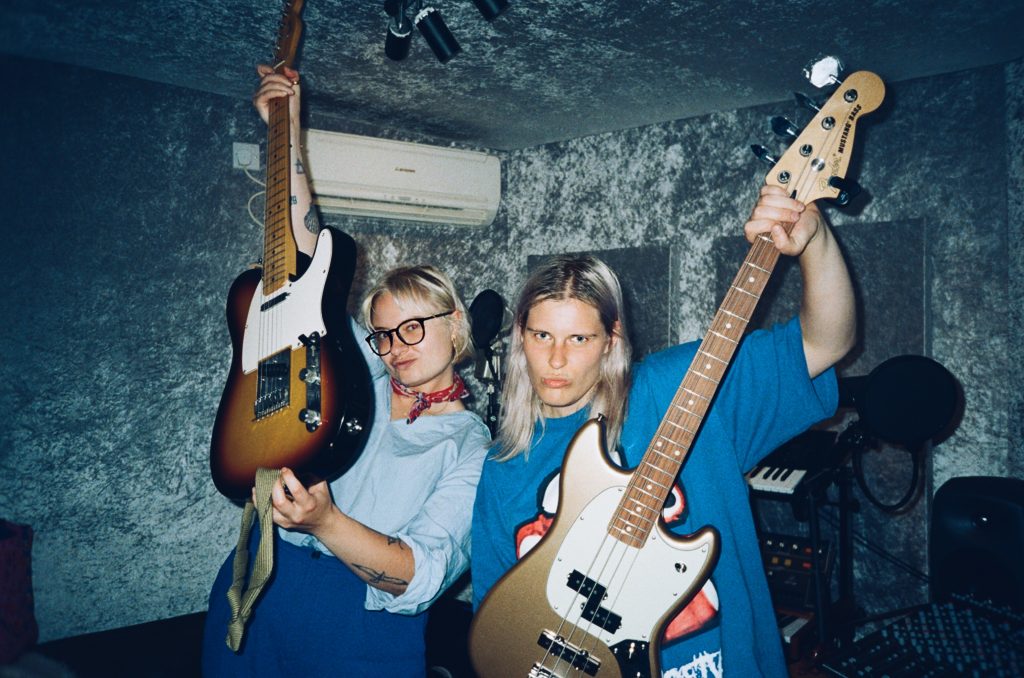
What is your big picture career goal?
To win best producer at the Grammys and to play Fuji Rock, Coachella and Glastonbury.
Who are your role models in the industry be they local or International?
I have quite a few role models! First of all Peggy Gou is so badass, she’s been paving her lane for so many years now, one of the most underrated dance producers of our time, I can’t believe she wasn’t up for a Grammy this year. Creatively Tyler the Creator is really inspirational, every product he puts out is of such high quality, when it comes to visuals, the live show and branding.
I am such a big Mark Ronson fan, I love his own project but also his touch on so many different artist projects. I just think it’s really inspiring, and something I would love to continue to do in my own career. Lastly, someone I have so much respect for in our industry is Pip Norman. I’m lucky enough to share a studio with him in Melbourne, he’s so creative, has so much positive energy and is one of the hardest working people in our industry.
Who are your top 3 ‘artists to watch’?
We are so lucky, there’s no shortage of talent in this country. Three artists to watch in my book are Tiffi, Mikayla Pasterfield and Kee’ahn.
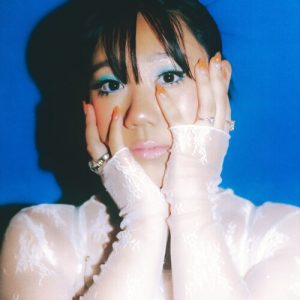
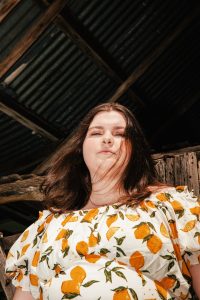
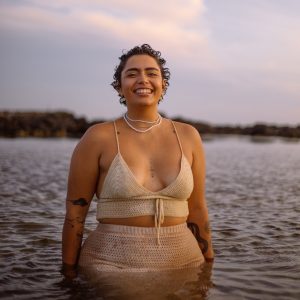
Do you think the Australian Music Industry is where it needs to be in regarding diversity? If yes or no, what would you like to see?
Sadly no. The Australian music industry has a massive gap to fill when it comes to diversity on festival bills, at awards ceremonies, play-listing and radio airplay. There have been more conversations surrounding these issues in recent years but not enough change, and sadly I feel like it’s getting worse again. Just this morning I read that not a single local female artist or songwriter won at a major awards ceremony except for Sia (but she hasn’t been local for a long time) It’s not good enough.
What does true allyship look like to you?
True allyship is someone who takes action in change, not just in words.

Music & activism have always gone hand in hand, when together it is powerful & influential. Why do you think that is so?
Music unites us in a moment in time, whether it be at a show or just listening at home. It’s even more powerful when the messaging behind it is meaningful. People look up to artists, and being in the position where you can unite people in a place in time with music with meaningful messaging is a very powerful position to be in.
Are there any important matters that need to be discussed at the forefront within the music industry?
Where to begin! There are so many important matters that need to be discussed. First of all, the industry is broken, and has been for a while now. It’s getting more difficult for an artist to break due to oversaturation in the market, and the once reliable income stream from live and touring has slowed to a trickle due to a lack of ticket sales, high cost of living and perhaps even cultural changes and less demand for live music.
Particularly in electronic music there is still a massive gender gap, not a single solo female producer has ever won ‘Best Dance’ or ‘Best Producer’ at the ARIA Awards, which completely baffles me given how many extraordinary female producers we have in Australia.
I understand that the world is ever evolving. The role of an artist has completely changed, sadly it feels like there’s less of a focus on actually making great music but rather investing time and energy on the marketing side of it all. Incredible artists aren’t necessarily good at self-promoting on social media, which begs the question; how many incredible artists are out there that we will never hear from because they got lost in the noise? I can’t imagine Amy Winehouse being heavily active on socials if she were around today. How many once-in-a-generation artists are we going to miss because they weren’t compatible with the marketing demands being placed on artists?
Then there is the whole songwriting / production side of things where most producers and songwriters work on spec, and only get paid if their songs get used by artists. Songwriters generally only get paid through their publishing splits, which is absolutely absurd. How can they be expected to cover their living and working costs without a fee?
There are so many broken things in our industry, the list goes on and on, it largely stems from living in a society that has never really truly appreciated the value of music and how much of an influence it has on people and culture.
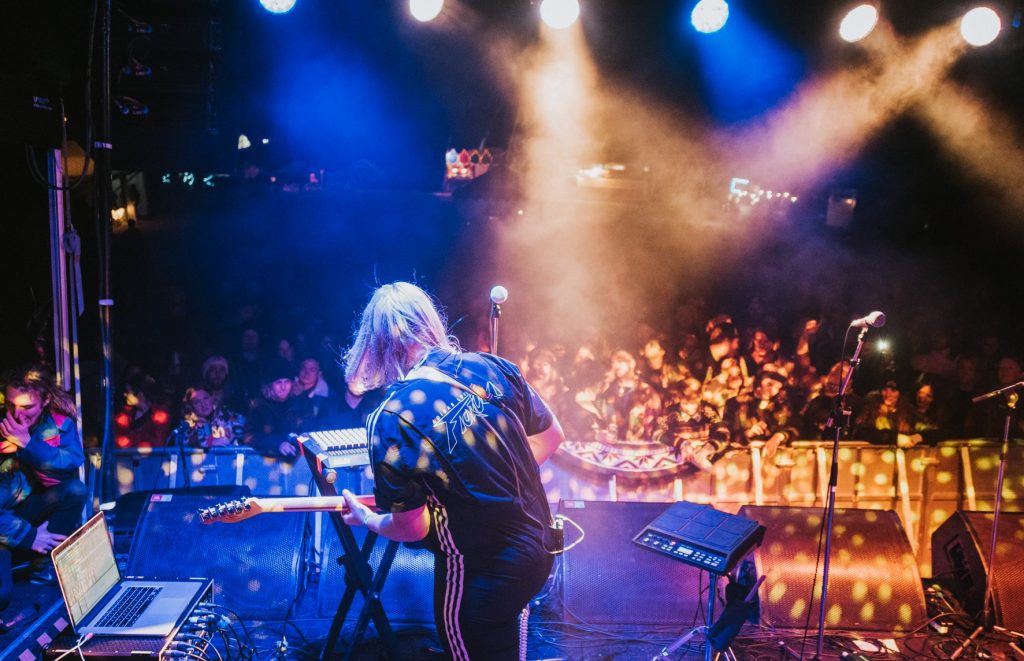
Production tends to be viewed as such a heavy male dominated part of the industry.
What do you think needs to be implemented within the industry to ensure that Women/GNC folk feel that there is a place for them within the production space?
If you are a male producer, maybe opening up a space in your studio environment to a female / GNC producer would be a good start. If you’re looking for an assistant or an engineer, maybe provide that opportunity to a female / GNC person. Also championing those around you and opening your community up to them! Label and publishing A&R’s, when you’re running songwriting camps and looking at producers and mixing engineers for your artist’s projects, perhaps look at the incredible female and GNC producers that we have right here in Australia; Anna Laverty, Lucy Blomkamp, Maribelle, Chelsea Warner, Antonia Gauci, Milan Ring, Becki Witton, Bonnie Knight, just to name a few!
“The Australian music industry has a massive gap to fill when it comes to diversity on festival bills, at awards ceremonies, play-listing and radio airplay. There have been more conversations surrounding these issues in recent years but not enough change, and sadly I feel like it’s getting worse again.”
Do you feel the industry is gatekept?
Unfortunately I do and I think because the Australian scene is so small we feel it more acutely here. It’s particularly scary as an artist because your art and your livelihood is in the hands of tech companies, radio stations and faceless social media giants who might not even come from a musical background or understand the value of what you’re doing.
What changes do you think need to be made when it comes to accessibility?
There’s still a long way to go when it comes to accessibility in music on many levels! On the live music front, something I am starting to see more is Auslan interpreters at live shows. It’s really great and it’s definitely something I want to do my best to incorporate for future shows. Venues and festivals providing access points through ramps, lifts and accessible seating to those who need it. In music production I’d love to see and be able to understand more about technologies in place that could help people with physical and mobility issues be able to produce music.
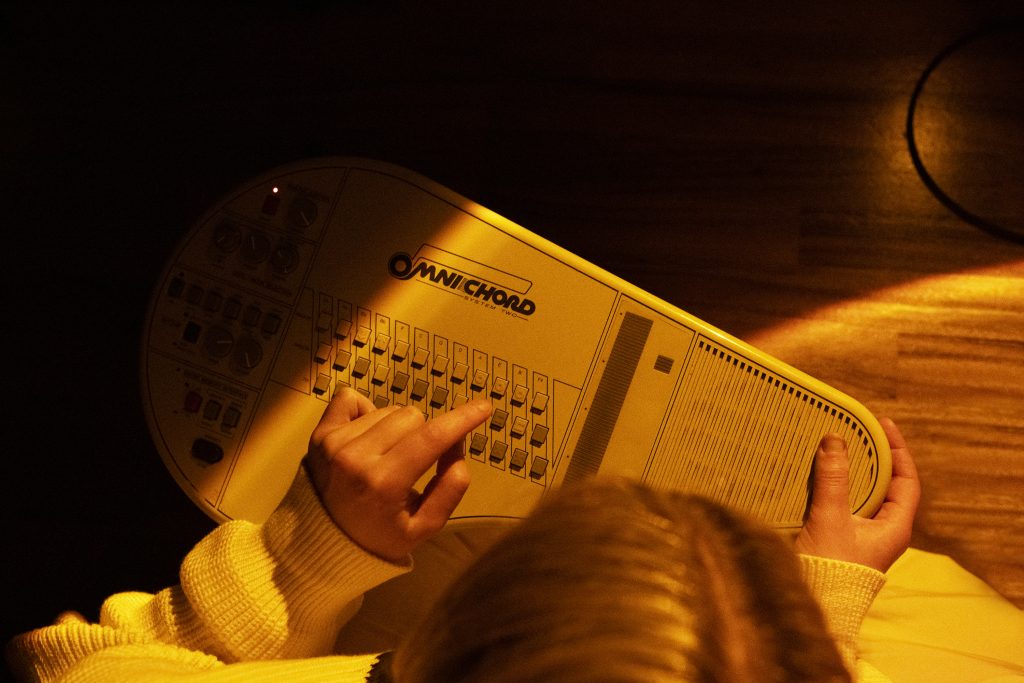
What does a safe space look like to you?
A safe space is where everyone leaves their ego at the door, there is an equal power balance in the room and everyone feels safe to speak up without fear of judgment.
As an artist what is important for you to see at your shows when it comes to audience engagement, what message would you love for them to take away?
Pre-buy tickets to shows! Ticket sales are at an all-time low in this country at the moment, we’ve seen major festivals such as Splendour in the Grass and Groovin’ the Moo fold due to a lack of ticket sales. Pre-buying tickets early and buying a t-shirt or a piece of merch from an artist are among the best things you can be doing to support local music right now.
“There are so many broken things in our industry, the list goes on and on, it largely stems from living in a society that has never really truly appreciated the value of music and how much of an influence it has on people and culture.”
What advice do you have for folk who are coming up in the industry, particularly in your line of work?
Be patient and show that you’re in it for the long run. I’m not gonna lie, it’s not the kind of industry where you can expect to make heaps of money overnight, it’s something you have to want to do for the love of working in music. It can be one of the most rewarding jobs on the planet, but it’s a lot of hard work and trust building. Be kind, be patient and don’t expect everything to happen all at once!
What was it like growing up & experiencing the industry outside looking in? Now that you’re in it, what has your experience been like?
Growing up I was so excited about the festival scene and the idea of playing big shows. Being in it you realize how much work is actually involved in getting to those moments, but the feeling of how exciting it is to perform at a festival, or play a sold out show is still the same.
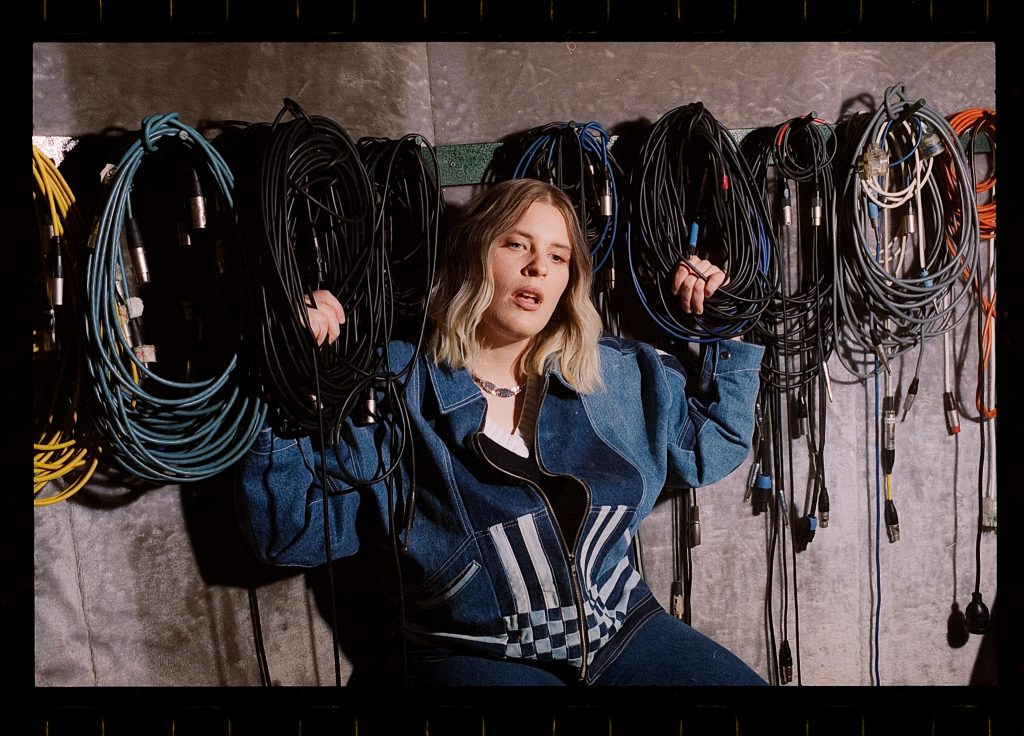
Most people don’t see the mountain of work that goes into your art till you’re towards the peak, what was the hardest obstacle you’ve had to overcome as an artist?
Putting out a record during lockdown in 2020 was definitely mentally challenging. I couldn’t even travel more than 5kms from my house. My manager and I had a glass of champagne via Zoom when it came out! But I think even now, with festivals and shows canceling left right and centre the industry has become harder to navigate than ever. It feels like it’s been flipped on its head.
Self identity & imposter syndrome are issues women in the industry struggle with. Have you faced this issue? If so/not, what tips can you give to encourage others to stand in their truth?
I’ve definitely faced this issue in the past and it’s definitely improved with confidence and experience. I think you just have to keep telling yourself that you are where you are due to the extreme amount of hard work that you’ve put in to get to that point and you deserve to be where you are. One thing that also helps me in these moments in writing down five things that you are the most proud of in your career. Self reflection and celebrating the wins is really important.
“People look up to artists, and being in the position where you can unite people in a place in time with music with meaningful messaging is a very powerful position to be in.”
As an artist, is there a message you would like to give to others in the industry that doesn’t work in your line of work? Eg. Bookers, label leaders, producers etc.
We are all going through a tough time in our industry at the moment, but perhaps it’s providing us with a unique opportunity to hit reset on the things that have been so difficult over the past few years. That and book/hire/play more women / GNC folks.
When I grow up I want to be or I want to see?
When I grow up I want to see more diverse award ceremonies and festival lineups, and for the focus to be back on the music again.
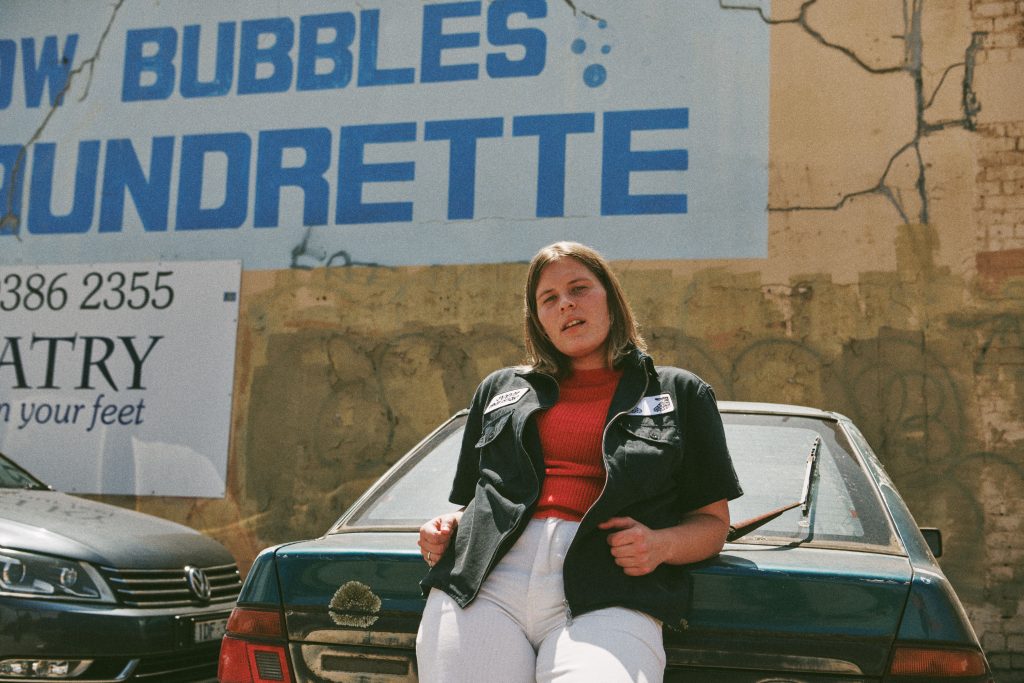
What can we all look forward to for 2024, any big projects you can let us in on?
My third studio album, ‘Do What Makes You Happy’ is coming out later this year. I’ve already released five singles from it, including songs with Mayer Hawthorne, Kah-Lo, BJ The Chicago Kid and Mallrat. I’ve worked so hard on this album over the past three years, I can’t wait for you to hear it.
What is your go-to Karaoke song?
John Denver – Take Me Home, Country Roads.
